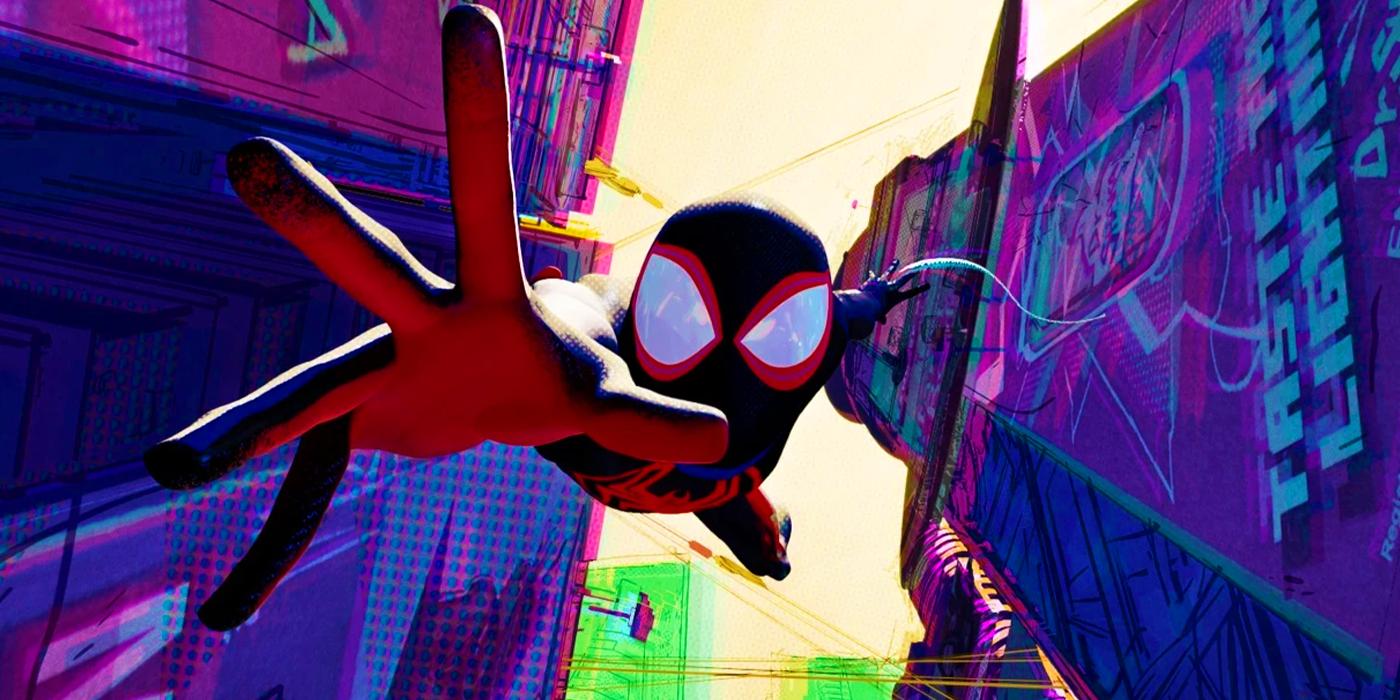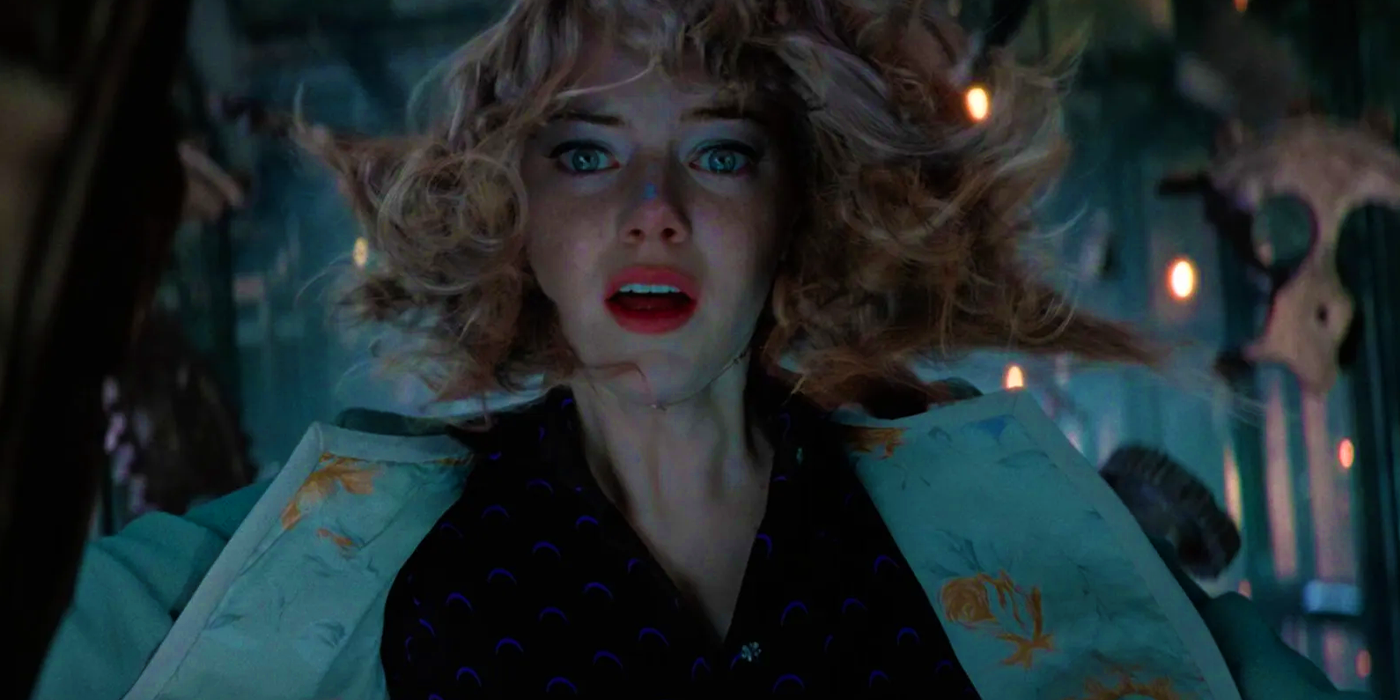Spider-Man: Across the Spider-Verse gave audiences new information about Spider-Man’s life that could turn out to be catastrophic for the MCU after the events of Spider-Man: No Way Home. As the sequel to 2018’s Spider-Man: Into the Spider-Verse, Across the Spider-Verse caught up with Miles Morales over a year after he became Spider-Man, and introduced him to the Spider Society, a group of interdimensional Spider-People tasked with protecting the multiverse. Led by Miguel O’Hara, a.k.a. Spider-Man 2099, the Spider Society dealt with multiversal anomalies, and ensured that “canon events” came to pass to motivate each Spider-Person to be the best hero they can be.
Canon events in Spider-Man: Across the Spider-Verse were described as a series of moments that must happen in the life of every Spider-Person, binding the “Spider-Verse” together and forging each Spider-Man into the best version of themselves. While these canon events can vary, some of the primary moments include being bitten by a radioactive spider, the death of Uncle Ben or a similar father figure, the death of a police Captain close to Spider-Man, and the bonding to the Venom symbiote. Since these events need to happen to ensure the stability of the Spider-Verse, the breaking or avoiding of canon events could potentially have destructive ramifications for the multiverse.
Spider-Man: Across The Spider-Verse Proved The Damage Of Breaking Canon Events
The devastation caused by breaking a canon event was seen in Spider-Man: Across the Spider-Verse, during Miles Morales’ first visit to an alternate reality. After Miles, Gwen Stacy, a.k.a. Spider-Woman, Hobart “Hobie” Brown, a.k.a. Spider-Punk, and Pavitr Prabhakar, a.k.a. Spider-Man: India, have an altercation with the Spot in Pavitr’s universe, the group set out to save civilians from the collapsing Alchemax facility. During this moment, Miles saved Captain Singh, breaking a canon event which involves a police captain’s death. While this initially seemed inconsequential, this action caused Pavitr’s reality to begin to collapse, as the Spider-Verse became more unstable.
Later, while Miguel O’Hara was revealing his backstory, he stated that, by replacing a version of himself from another reality, Spider-Man 2099 broke a series of canon events which led to the destruction of that universe. Miguel also revealed to Miles that the latter’s existence as Spider-Man is a violation of several canon events, as his bite from a spider from another universe meant that Earth-42’s canon events couldn’t be completed – leading to the dark world seen at the end of Spider-Man: Across the Spider-Verse. The fact that breaking canon events can be so dangerous means that the world of the MCU could now be in jeopardy.
The Death Of A Best Friend Is An Important Spider-Man Canon Event
One of the key canon events established in Spider-Man: Across the Spider-Verse is the death of one of Spider-Man’s best friends. This storyline has been seen time-and-again in a variety of Spider-Man films, and has often been seen as a crucial moment in the cultivation of Spider-Man’s heroic identity. The death of Spider-Man’s best friend has been adapted differently each time, with Sam Raimi’s Spider-Man 3 exploring Harry Osborn’s death, Marc Webb’s The Amazing Spider-Man 2 featuring the death of Gwen Stacy, and Spider-Man: Across the Spider-Verse detailing Earth-65’s Peter Parker’s death after becoming the Lizard, motivating Gwen Stacy to continue as Spider-Woman.
Garfield Saving MJ Is A Problem For MCU Spider-Man
While Tobey Maguire’s, Andrew Garfield’s, and Hailee Steinfeld’s Spider-People, among many others, have all been shown to have lost their closest friends – fulfilling the canon event – Tom Holland’s Spider-Man in the MCU has not. This almost occurred in Spider-Man: No Way Home, however, as Zendaya’s MJ fell from the Statue of Liberty during the film’s final battle against the multiversal villains. Luckily for her, her death was avoided by Andrew Garfield’s Spider-Man leaping to action, redeeming himself after his inability to save Gwen Stacy in The Amazing Spider-Man 2, but potentially causing an even greater problem for the future of the MCU.
It could be assumed that MJ’s death in Spider-Man: No Way Home would have fulfilled this canon event for the MCU’s Peter Parker, so the fact that this canon event was broken could destabilize the MCU’s reality. This is dependent on the idea that Sony’s Spider-Verse projects and Marvel Studios’ MCU are actually connected, which was established during Spider-Man: Across the Spider-Verse, as Miguel O’Hara referenced the events of No Way Home. It’s unclear what effect the breaking of this canon event could have on Spider-Man’s MCU future, but if Spider-Man: Across the Spider-Verse is anything to go by, the MCU could be in trouble after Spider-Man: No Way Home.



